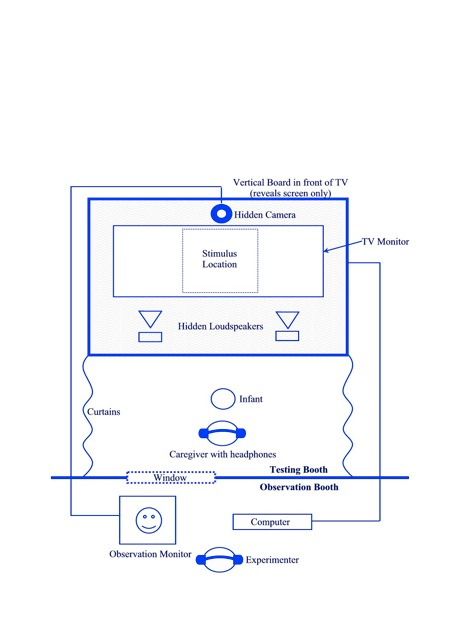
Derek M. Houston – dmhousto@indiana.edu
Department of Otolaryngology – Head & Neck Surgery
Indiana University School of Medicine
Indianapolis, IN 46202, USA
Popular version of paper 1pPP5
Presented Monday afternoon, May 23, 2011
161st Meeting of the Acoustical Society of America
Cochlear implants are devices that can provide deaf infants the opportunity to hear and learn spoken language. However, there is a lot of variability in how well deaf children learn spoken language after cochlear implantation. Some of these children develop age-appropriate language while others struggle tremendously. One possible reason for why some children do not learn language as well is because they might not pay enough attention to the speech they hear through their cochlear implants.
Why might infants with cochlear implants not attend to speech?
Providing deaf infants access to sound through a cochlear implant does not guarantee they will pay attention to speech or any other sounds. When infants are born deaf, their development is shaped by a silent world. They learn to tune into the sights, smells, and touches that are relevant to them in their environment – but not the sounds. Then, when they receive a cochlear implant, their world changes and is filled with sounds. But for these infants who have already begun to adapt to their silent environment, sounds may be – at least at first – irrelevant if not intrusive to their sensory experience. In other words, they may hear the sounds around them but not have any motivation to focus on them.
Why is attention to speech important for language outcomes?
Attention and learning go hand-in-hand. It is very difficult to learn anything without at least some degree of attention. Normal-hearing infants are naturally attracted to and attentive to speech from birth and learn language without the need of any formal instruction. Part of the reason that they learn language so easily is because they stimulated by the speech of the people around them. So deaf infants who are not attentive to speech after cochlear implantation may be at risk for not developing good language skills.
Method
It has been well established that infants will look longer at a simple display (e.g., a checkerboard pattern on a TV monitor) when hearing something that interests them (Horowitz, 1975). We brought infants into a sound booth where they sat on their caregiver’s lap in front of a TV monitor (Figure 1). We measured their looking time to a checkerboard pattern when it was paired with a repeating speech sound (e.g., “hop hop hop”) and compared that to their looking time to the same checkerboard pattern with no sound. The difference in looking times was our measure for how much the speech attracted infants’ attention.

Figure 1. Illustration of testing and control booths. Infants were seated on their caregiver’s lap in front of a large TV monitor and camera. To direct infants’ attention to the TV screen, a façade was placed in front of the TV that revealed only the screen. In a separate control booth, a researcher observed the infants and recorded their looking times to the TV screen on a computer.
Results and Discussion
During the first month of experience with a cochlear implant, deaf infants did not show any attention to speech. By about six months after cochlear implantation, they showed some attention to speech but much less so than their “hearing age-matched peers” (i.e. normal-hearing infants with the same amount of hearing experience – 6-month-olds, in this case). Compared to normal-hearing infants their same age, infants with cochlear implants sometimes showed the same amount of attention to speech and sometimes showed less, depending on the type of speech that was presented.
Reduced attention to speech may impede deaf infants’ ability to learn spoken language after cochlear implantation. Indeed, we found that infants’ attention to speech at 6 months after cochlear implantation correlated with their ability to recognize words two years later, suggesting that attention to speech may be related to some aspects of their ability to accurately perceive speech.
Future research will investigate the effects of attention to speech on more specific aspects of early speech perception and language development. This research has implications for therapy. Speech-language pathologists need to know in what ways and the degree to which attention to speech is important for language development in this population so they can know how much time to devote to improving listening and attention skills.
References
Horowitz, FD. (1975) Visual attention, auditory stimulation, and language discrimination in young infants. Monogr Soc Res Child Dev, 39(5-6), 1-140.
[This research was funded by a research grant from the NIDCD (NIH-DC006235)]